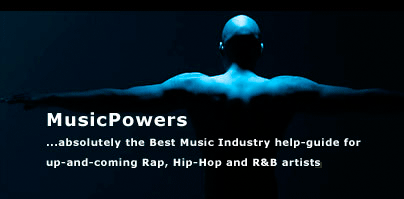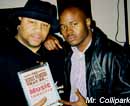| |
Do you have music or beats for sale or to lease
or license? The Business of Selling Beats & Leasing
Beats for Producers and Beat Makers - part 2
Putting it in writing - Selling vs. Leasing - Contents of the Agreement - The Term - The
Producer’s Fee - Advances - Producer Royalties - Ownership of The Masters - Production of Subsequent
LP(s) - Sample Clearance / Sampling - Your Credit on the Record - Cataloging & Tracking - Protecting Your Beats -
The Attorney Hire - Slangin’ Beats on-line via World Wide Web / Internet - Leasing Rights - Exclusive
Rights - Purchasing Beats
The agreement (or beat contract) does not have to be long or complex – it should merely set forth your agreement
regarding the artist’s use of the beat in language that both you and the artist understand. Hip Hop and Rap Producers may be tempted to let an artist
use their beats without going through the hassle of writing out an agreement, or working out a license. For
example, the up-and-coming artist may be someone that the producer is on friendly terms with. The producer
may think that their friendship will be ruined if the producer “gets formal” with him, or on the other hand, an
established artist may be someone the producer views as a “pathway” into the biz. Accordingly,
the producer may fear ruining this relationship also by insisting on a written agreement.

Despite
this apprehension, you must put the agreement in writing Ironically, not getting
the deal in writing poses a much greater risk of ruining a relationship than simply writing down your agreement. In
this business, countless friendships have gone down in flames – or up-in-flames, however you want to look at it –
when the money started coming in and the division of that money had not been agreed upon beforehand. An established
artist should be accustomed to using written agreements, and in most instances, will respect your professionalism
in requesting an agreement in writing. At the same time, the new artist will be forced to realize that you are running
a business, and to take you and your music seriously. Often, an up-and-coming producer will let an artist borrow a beat – figuring “who cares, nobody’s
using it” – without thinking about the financial aspects of letting
him or her use the beat. For instance, if an artist using one of those beats gets signed and uses
the beat on the resulting album, you will not have your points worked out. Further,
you won’t know whether you are getting an advance, royalties, retaining your publishing, etc. Now
you will have to go back and work out the deal in reverse. For an up-and-coming producer, working out a
deal in reverse is not the best position to be in because the production company or record label will be applying pressure on the artist to get your
beat for the least amount of money possible; either directly or by possibly giving the artist a bad
deal which has the effect of squeezing you out. That’s just the reality
of the business. Because the beat has already been created, the producer may not have much leverage in
negotiating a desired production fee or advance.

At the same time, a producer may let an artist who is not likely to be signed, use a beat. But
what if a second artist, who may have multiple offers for a record deal on the table,
comes along and wants to buy that same beat? Will you have the right to sell him the
beat?
Learn about “The Business Of Selling & Leasing Beats” >>
|